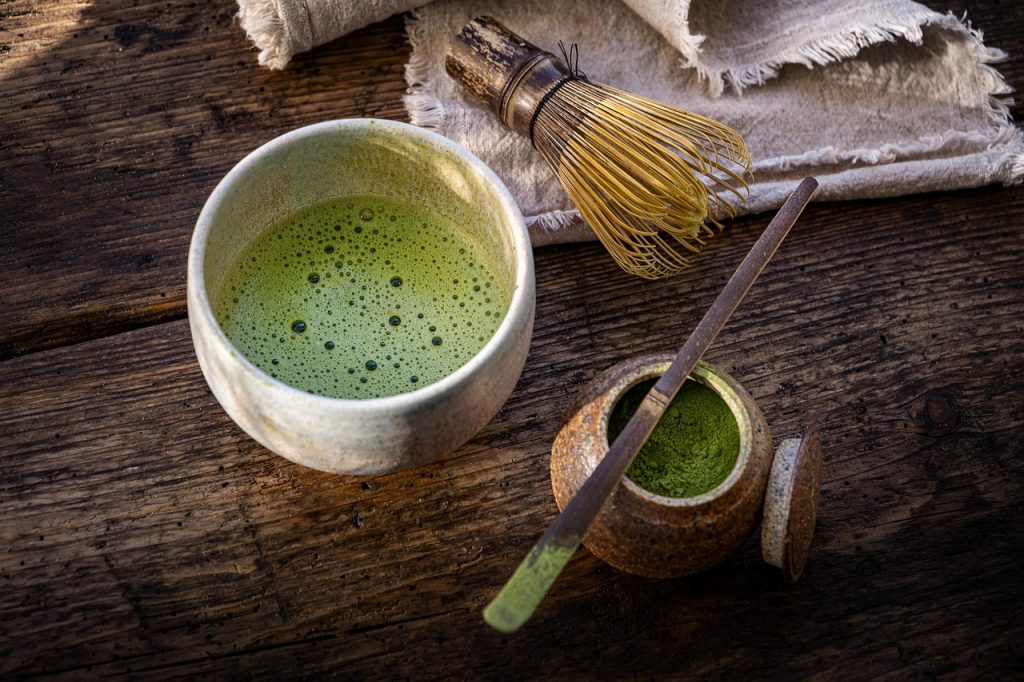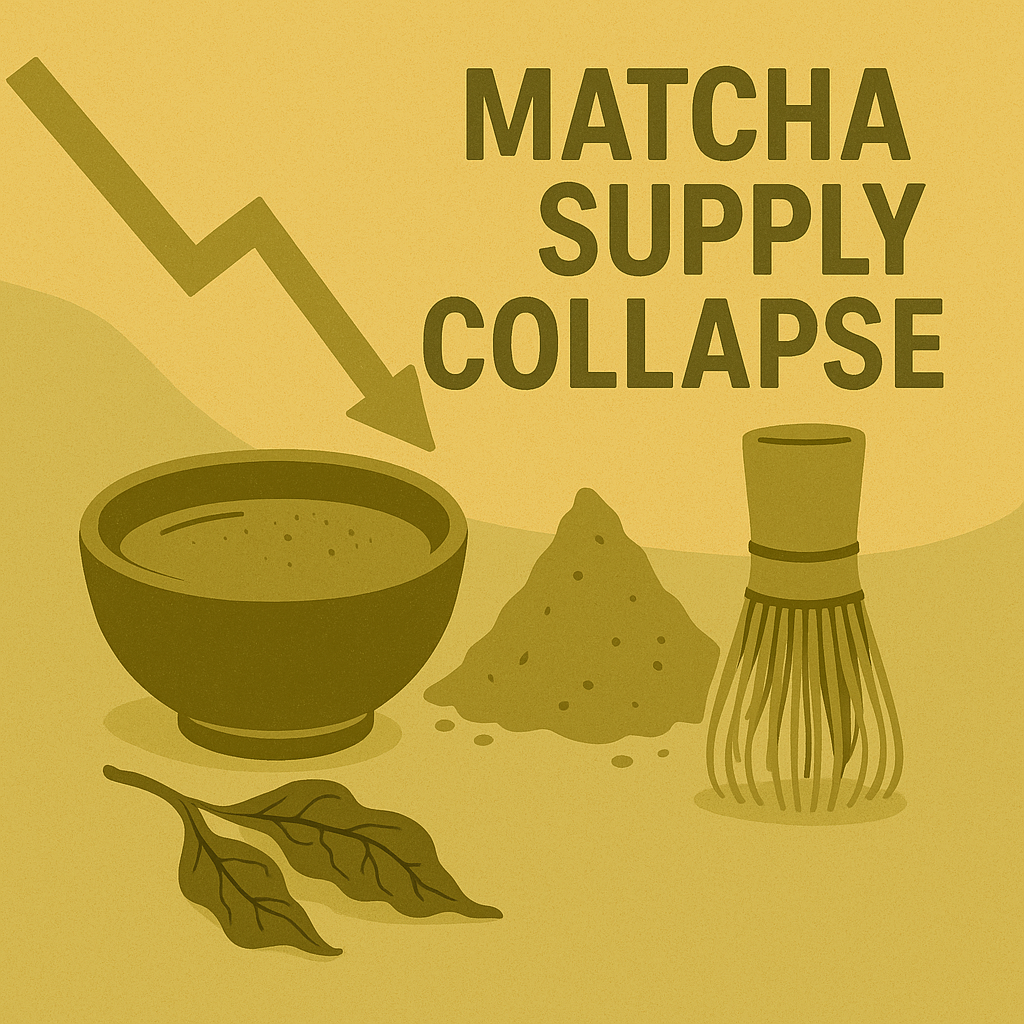Imagine scrolling through your pantry, on track to make a perfect matcha bowl tomorrow—until you notice the can of powder is empty. And restocks are weeks out. Welcome to the 2025 matcha supply collapse
The Matcha Obsession Goes Global — But at What Cost?

Scroll through your favorite wellness influencer’s feed, and odds are you’ll see that iconic green swirl in every other post. From iced matcha lattes to protein bowls, matcha has become the aesthetic fuel of Gen Z and Millennials. But behind the Instagrammable glow lies a brewing problem: the world may be running out of matcha.
Matcha’s vibrant color and health benefits have turned it into a “superfood darling” on social media. Rich in antioxidants and marketed as a natural energy booster, it’s been championed by wellness influencers and dieticians alike.

Take Tara Zaw, for instance. Known as @MelbMatchaGirlies on Instagram, she’s become a local matcha guide for thousands in Melbourne, posting daily about where to find the perfect cup. Her reels rack up thousands of views in hours, and cafes she features often see long queues the next day.
But this viral success story is causing a supply strain no one was ready for.
“A combo of post-COVID global demand and tourism booms hit producers like a tsunami,” one Tokyo-based exporter said. “We simply couldn’t keep up.”
And it’s not just hype — matcha isn’t easy to grow. It’s labour-intensive, climate-sensitive, and requires precise hand-harvesting under shade-grown conditions. A single mistake can ruin an entire batch of tencha, the leaf used to make matcha powder.
“There’s limited land in Japan,” said cafe owner Yuki Miura in Kyoto. “I worry that as demand grows, farmers might rush things, and quality could drop.”
Even as prices soar and supply tightens, the craze shows no signs of fading. For farmers and suppliers, it’s a race against time to meet the world’s appetite for this green gold — without losing the essence that made it special in the first place.
FAQ – Matcha Crisis 2025
Q1: Why is matcha suddenly in short supply?
A: Explosive demand from social media trends + limited farmland + climate changes in Japan.
Q2: Is matcha being overproduced now?
A: No. Its traditional methods and limited terrain make it hard to scale.
Q3: Will prices come down?
A: Unlikely in 2025 — tariffs, logistics, and crop loss are driving prices up.
Q4: Is there fake matcha in the market now?
A: Yes. Some low-quality or non-Japanese products are being sold as matcha. Always check the origin.

